At my office a few days ago, a Chief of Staff level exec and I were having a discussion. This guy is one of my favorite people in the place where I work. You know how you sometimes have to warm up to people, and how you sometimes simply know you like someone from the first time you meet them? This guy's on that nice and easy second list.
We were talking about how to approach a certain issue, and he said, only half-joking, that he wasn't going to use a confrontational approach, and neither would his boss, as they were both Norwegians. And he looked over at me and grinned. I knew without further explanation what he meant. "We're Norwegian" meant to both of us that they were quiet, not prone to loud or argumentative behavior; that they were going to be polite and subdued in their approaches.
"Well," I said. "I'm Irish." And I grinned back at him.
"Yes...I thought so."
And we both had a good grin then, because our conversation was in a kind of ancestry-shorthand-code; we both knew he was telling me his story, about the end-game he and his boss were looking for, so that I could look for a social, vocal, pushier way to a solution for all involved - which, in this case, was called for.
We'd both heard stories growing up, as everyone does, about who we are, about where we and our people came from, and what that means in the scheme of the definition of them as individuals.
I learned about who I was and what the history of my 'people' was, by listening to family stories, and learning about the personality traits held in esteem by my family.
One half of my family came from a poor area in the city I'm from, a neighborhood called Irish Hill.
This picture is of my father, on the left, and my uncle, on the right, during the Great Depression, in Irish Hill. In less than ten years, both of these brothers were in the Pacific, fighting in the Second World War. After the war, both of these brothers had their children later in life than their postwar peer group did, in general. And both of these brothers had the 'gift of the gab' without ever laying their eyes on Ireland, the country their ancestors called home until the mid 1800s.
Stories we're told about who we are matter. We fold them into who we become, and we pass them on for generations.
My family stories included tales of bravado (false and otherwise), smart mouths, raucous humor, tough "I can make it through anything" attitudes, self-reliance, distrust of authority figures, and emphasis on the importance of story, and of sticking together, as well as an inordinate emphasis on intelligence as a way of measuring self-worth. (One of my cousins and I saw a long time ago that this lifelong family emphasis stemmed from placing a value on the one thing our fathers had - the one thing they 'owned' - that was good enough not to be ashamed of, when they were growing up so desperately poor.)
What are your family stories about who you are and where you came from, and what is held most dear, most important, in your family story?
Do you agree or disagree with the ancestry-shorthand-code idea?
Wednesday, June 25, 2008
The Stories of Us
Subscribe to:
Post Comments (Atom)

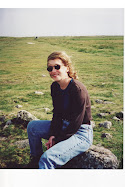

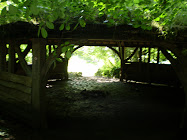
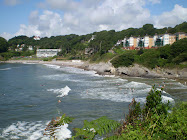





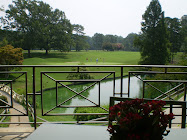
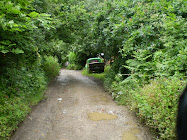

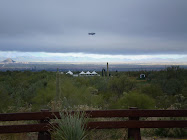
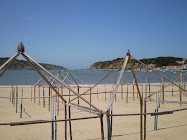
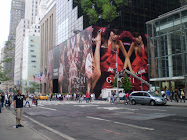
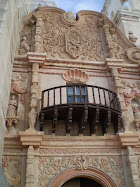

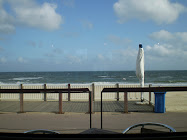
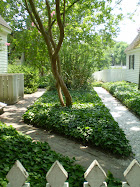
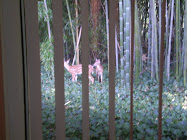
33 comments:
That always struck me as a very American thing, that pre-occupation with where you came from. But these days, I see it differently. I was never consciously aware of being British, until I moved away from Britain. But I don't know how much my Britishness is innate, verus conforming to a set of cultural norms. Are you a fiery Irish descendant because it's in your DNA, or because you've been brought up to be a fiery Irish descendant?
My heritage isn't something I actively thought about until I was spending time much further from my "ancestral home".
I don't know, perhaps our roots are elastic, and the further we get from where we started, the more we feel their pull?
What a wonderful topic. I come from so many different cultures that I always think about how those stereotypical traits play into my makeup--or if they do at all.
And when I mean I'm a mutt, I mean it. Maori, Polish, Scottish, Norwegian, German, Choctaw, and more.
Coming from so many people, I think I take on the traits I want to. I adored my grandmother from New Zealand who was Maori and Scottish, so I tend to identify with those ancestors and their cultures the most.
If either side of my family have left any trace at all, it's rotting in a varity of churchyards, unspoken and unsung.
I only discovered from my Dad a couple of months ago that my Grandad could play the lute.
All I know is that my Dad's Grandad was 6' 6" and that some of those genes must have sneaked passed my Mum's Midget Family Inheritance and that my Mum's own Gypsyesque swarthyness snuffed out the bleached look of misery swelling the chromosomes on the other side.
My ancestors, it seems, were a bunch of uselessly invisible unheroic layabouts.
My Two Cents:
I'm an American. My ancestors were here long before we were a country. Even if they weren't, I was born here and raised here.
Where do I come from?:The United States of America; born in the State of Kentucky and raised in a little burg called Louisville.
Obsessing about where your ancestors come from, and somehow tying that in to who you are, is just another way of saying, "I'm embarrassed to be an American Mutt."
I believe there are about 40 million people in America who claim to be Irish. There are only about 4 million people who live in Ireland.
My mother-in-law claims to be part Irish, German, Scottish, and Blackfoot.
Anyway, how are you on this fine day?
One of the things I like about America -- from an outsider's point of view -- is that it is a non-homogeneous culture. I think that's OK. And I'm more than happy -- as an outsider -- to think that the Irish-Americans and Italian-Americans and African-Americans and Native Americans et. al. still feel the tug of their roots. Why not?
Hi guys-
ril and WO, do you think of yourselves as British?
What I mean is, if someone asks you what nationality you are- do you think 'British', or do you think English/Welsh/Scottish first and then 'translate'?
I ask this because when my husband is asked, he says Welsh - and then tacks on British if it's obvious that he's getting nowhere with that answer (in America, unfortunately, it happens).
Hi Natalie-
I know what you mean - my side of the family: Irish Catholic on one side, Scots-Irish Protestant on the other. Go Celts.
On their dad's side - it's a true melting pot: Norwegian, Irish, Dutch, and Comanche.
And interestingly - as you mentioned, the girls like their mish mash of ancestry- but they tell people they'e "60% Irish" when asked - and then they mention the Norwegian and Comanche for the dramatic effect every once in a while.
Arlyle - I see what you mean - but- I'm not obsessed, although I am interested in the part our ancestry plays in who we become - and I like to think about the reasons. And I think it's a combination of what ril said:
perhaps our roots are elastic, and the further we get from where we started, the more we feel their pull?
and some DNA.
Example: I used to come in my house as a four or five year old girl, wiping my hands together like i'd done a good job, after knocking the hell out of some kid on the block for some transgression against my little brother. I protected him even when he didn't need any protecting.
I never got in trouble, amazingly.
I found out years later that my dad was the protector among his siblings. He told me he used to walk out his front door feeling like he wanted to hit somebody.
Bear in mind the neighborhood they lived in - but even so - I'd say there's something interesting there. I was like him before I knew I was like him. Food for thought.
I'll take the British question...
I'm Scottish.
However, I don't think this is a question that massively bothers the English. I think for them it's more interchangeable. I don't deny that I'm British. The power of the passport has taken me a long way, but in my heart of hearts, I'm Scottish.
Now, because I was born and bred in Scotland, this has a slightly different meaning for me than for someone who wasn't. I am also now Australian; got the passport to prove it. But I'm Scottish.
My kids on the other hand consider themselves Australian. They've got both passports, they were born in England, but as far as they are concerned they are Australian. Soccer Boy does have some memories of England, but to him that doesn't mean he's English. He is, however, intrigued to know that when he grows up and becomes a soccer player (which, of course, he will) his background means he can play for Australia, Ireland, England or Scotland. Alas, not for Wales, sorry Brit Boy.
Before I left the UK, I think I definitely thought of myself as English. Now, after 10 years away, I'm conditioned to think British. The perils of working for an American company.
Interestingly, my Japanese documentation lists my nationality as イギリス which is a transliteration of the word "English". Scots and Welsh would also be considered イギリス here.
Also, interestingly perhaps, I have never thought of myself as European, and when I think Europe, I tend to think of Mainland Europe. Not that European is a nationality, of course.
Wow. All of those choices incuding Ireland (Northern Ireland? or is Ireland Soccer Boy's dad's orginl homeland?)
But no Welsh? That makes it seem to me like the answer to my question is Ireland and dad.
So- McK thinks 'Scottish', and JB, a/k/a Brit boy thinks 'Welsh'.
WO and ril - are you guys those English Brits then?
JB doesn't think of himself as European either. Said he never has.
Ireland and a granddad!
No, I don't think of myself as European either, although that is changing slightly here. I mean, if people compliment me and say I have 'European style', who am I to argue?
...who am I to argue?
Depends if they mean Parisian Boulevard or Romanian beetroot farm...
I used to be British as far as things like tax forms were concerned, but increasingly I'm English. Perfectly aware of my inheritance — descended from a long line of warmongering ignorant c*nts, along with the odd poet and talented footballer.
Most of the Scots I know are quietly proud of their origins — including one who ran for the Scottish National Party. In England. They have sporrans, kilts and bagpipes, and in spite of their atrocious weather, they seem an accomodating lot.
Most of the Irish people I've met are still coming to terms with their upbringing as Catholics, but again, seem OK on the whole.
But the Welsh — the Welsh — with their hats, dragons, coal mines, rugby, Tom Jones and their Neil Bloody Kinnock. Christ! The Welsh are the worst! I know some great great great Welsh people, but also some spectacularly irritating ones. They have their own special language, you know. Arghhhh!
So — that leaves the English. We go abroad and beat everyone up, complaining it's not enough like England, and when we get home we complain the trains and buses don't run like they do on the continent.
Depends if they mean Parisian Boulevard or Romanian beetroot farm...
Been on a Romanian beetroot farm recently? I mean, like, wow. Those babes have style.
You non-European Europeans kill me, in a good way.
One of the things I think is kind of funny - is that for American, if you're so inclined as to be interested in ancestry - you say, maybe "I'm Irish" and you think that's where you're from - and always were until you arrived here, genetically speaking.
But then maybe you find out the Irish were not always Irish any more than the Native Americans are truly native.
One of my family names is Sinnott.
Apparently that group of Irish-eyes-are-smiling types were, I believe, orginally Flemish.
And, at least in this country, I learned in school that the English are descended frm the Angles and the Saxons, with the occasional Viking tossed in for good measure. That the Normans kinda stuck to themsleves, so they're blood has basically, if you will, petered out.
That the "native" Celts, who are as I understand it, as native as the Native Americans are, lost ground to the Anglo Saxons in Englad and were pushed north and west (approximate geography, guys.)
Then recenetky I read that a DNA study was done in Britain and it turns out that the vast majority of Britons are Celts - even those who thought they weren't.
I just think this whole ancestry, family tales, nature-nurture, migration pattern wraparound of a story is fascinating. Makes you wonder a bit about free will, and where that fits in. Especially when you toss in the twin studies that have been done.
Gotta go to work - see ya later.
Ah, now, the Flemish. If you've heard them talk, you'll know why it's called Flemish. Take a towel with you.
Ah, crud. I just wrote a long comment on this and blogger ate it.
Basically, my mom's ancestors were Mormon pioneers driven out of Missouri under threat of death.
My dad's ancestors were Missourians.
He's made up for it ; )
Oh, Kiertsen- I'm really sorry about your comment being eaten - in more than one way. First- It sounds like interesting history and a good story and I'd have liked to read about it, and
Second - I hate it when Blogger does that to a long comment I've taken the time to write. Makes me crazy! (Not that I'm not halfway there already.)
I think maybe the heritage thing is losing some of its potency generation to generation.
My dad grew up in a neighborhood segregated by nationality but bound by religion. The Irish-Catholics, Italian-Catholics and French-Catholics (my dad's ancestry) were at each others' throats, from the schoolyards to the factories. No one there ever let you forget who you were, especially if you were in the minority.
My mom, mostly a nice British mix, was always proud of her bit of Blackfoot.
Me? Not that interested in geneology. I do like European history over American history but anything more modern than the 1600s is pretty snooze-inducing for me. My minor in history focused on the medieval and ancient years -- far enough removed that I don't even remotely think of anyone in those times as my direct ancestors. Guess I'm just nationality blind.
Nature over nurture. Always an interesting debate.
Do you agree or disagree with the ancestry-shorthand-code idea?
Other than it can occasionally play into stereotypes, I don't have a problem with it.
Time for a history lesson for Freddie: What is the difference between English and British? I always thought they were the same thing. Is English the heritage and British the nationality?
I apologize in advance if it's a dumb question. You're talking to a girl who used to think New England was a state based on a Barry Manilow song.
I'll never forget that conversation with my mother.
My father is Russian, and when I went to see Eastern Promises, I felt like I recognized my whole family. There's a shorthand for "brooding"--that stereotypical, intense, Russian personality. So I think I've always had that shorthand. The Slavic side (my mother) was lighter, more boisterous.
My significant other is Mexican. First generation born here . . . and I have enjoyed seeing firsthand some of that sides customs. I've raised my kids to be very proud of being Hispanic . . . and yet there's always this sense that were a very big mix of both sides as well as firmly American.
Well I'm 100% Paddy. Born, bred the whole shebang. My entire ancestry is from Ireland - not a single blow-in in the mix. Then I went and married an Englishman (whose grandfather was German) and Protestant no less!
I personally think that a great percentage of identity is choice. It's actually a decision. Yes I'm definitely this but there's no way I'm that. My children are English. They have an Irish heritage but they haven't been exposed to the culture in the same way as their Irish cousins so it has far less meaning for them. Cultural references play a huge part in identity - this is the nurture part. I'm a lot more dubious about the influence of DNA. I look Irish. I'm very pale and freckly and once upon a time, before my father's genes kicked in, my hair had a reddish tinge to it.
I don't feel the need to fight anyone - but I recognise that hot-headed Irishness. But I've always felt it was a facet of the Irish personality borne out of a culture where drinking to excess and repression were uneasy bedfellows. If there's one thing we are brought up to do - it's hold a grudge!
Ireland has changed a lot in the last 20 years. It's far more European in its outlook than Britain. It's broken the yoke of Catholic repression. These days I'm a visitor, a tourist even and I find it's changed more and more every time I go home.
I'll always be Irish even though after 19 years here I've probably changed a lot. I'm at home here in England. It's not just where I live - I love it.
But still something stirs when I hear Irish music or see the landscape. I'm not sure if it's in my DNA but it's certainly in my soul.
Hi you all,
I'll be back tomorrow morning to actually say something besides 'hi'.
Happy to see you!
Robin, I'll try to elaborate on my comment soon. I've been pretty absorbed by my WIP lately, and thoughts about anything else are scattered at best.
To answer Freddie, the description 'British' refers to the inhabitants of The united kingdoms of England, Scotland, Ireland and Wales. So, while it is true that all Englishmen are British, not all British people are English. Indeed, certain sections of the Irish, Scottish and Welsh peoples feel so strongly about their national identity that they have a wish to become independent and no longer British.
It's funny, but how WO explained the whole British thing is how most English people understand it. However there is a subtle difference in the way I was taught. The term British covers those from the island of Great Britain ie the English, The Scottish and the Welsh. The United Kingdom refers to The United Kingdom of Great Britain and Northern Ireland. The ones from Northern Ireland still refer to themselves as Irish. The unionists will sometimes call themselves British (because they are firmly loyal to the Crown) but most will call themselves Ulstermen in preference to Irish. This, as I said, is how I was brought up to understand it - but then again I'm from the South West of Ireland. You'd probably have to ask Conduit for the definitive answer!
God it's complicated. There are lot sensitivities to consider in Idenity!! I think I might start referring to myself as an Earthling.
Thanks for the clarification, JV. I have no wish to misrepresent the Irish, but it's been complicated, historically, hasn't it?
Ah, got it. Thanks WO and JV!
Hi guys,
Reading your comments is so interesting.
Kiersten- I know what you mean - for the next month or so- I'm going to be around and about less myself- as I'm working so hard to finish my novel. Don't feel pressured - just go write- we'llbe here.
Erica,
Great to see you here with us, and thanks for coming! Your kids have a great melting pot to pick and choose from - that's what mine do, anyway. The love dropping that "I'm part Comanche" on people.
What you said about the Russian and Slavic personalities is inetersting - in that, jsut as with the Itish and other ancestry perosnality generalization/characterizations, there's often the ring of truth in there, which can be fun and refreshing to recognize- even celebrated- as a trait-in-common that helps you belong, as long as,
as freddie mentioned (hi freddie!) they arent' allowed to degenerate into stereotypes. But it sounds like with you, as with my family, there's pride-of-place with personality and backrground.
Hey phoenix-
I grew up with Irish, German, and Italian Catholics. The generation before mine - each had their owm neighborhoods - ver different and self-segregated - sort of like you were talking about. My mother's family boycotted her wedding because my dad was Catholic - not the same thing, of course, but still.
In a way- I hope, as ril put it "the tug od one's roots" doesn't entirely go away. I think, with all the moving and moving on and separateness of living that seems to be the norm now, at least in this country, roots provide a good grounding - as long as they're not taken to an extreme in a level of importance. Just my opinion, of course!
Hi Janey,
I loved being in Ireland - we visited a few years ago.
As close as you guys are geographically- do you not go back much and visit? It's gorgeous.
You and Whirl described the British Isles/United Kingdom in different ways - now I'm trying to remember exactly how I learned it.
My mother's family boycotted her wedding because my dad was Catholic - not the same thing, of course, but still.
In a way, though, it is the same thing. And, in some cases, religious roots go back even further than nationality roots. Just the opposite happened in my family -- my dad's Catholic family pretty much disowned him for many, many years because he married a Baptist.
Celebrating lineage can be terribly complicated, can't it? There must be a delicate balance in accepting the healthy and the unhealthy aspects of national or religious or political identification. Are you Northern Irish or Southern? A Yankee or a Rebel? East German or West German? Canadian or Quebec-ian? A Jew or an Orthodox Jew?
How far back do you think when you consider your cultural makeup? Turn of the century? Two hundred years? A thousand?
And why do you choose the parameters you do to define yourself? To me, why and how you define yourself are more telling than what you define yourself as.
Hi WO - as I said that was just the way I learned it. I just think it's funny the way the different cultures have differing views on that one! You're right about the complicated ol' history tho'. The longer I live here and the more Anglicised I become the further away all that history seems to me so it always hits me like a slap in the face when I go home and still hear anti-british sentiments bandied about as though it was still the 19th Century.
There's nothing that goes better with Guinness than a bit of a grudge! Personally I have no time for that stuff. Or grudges.
Robin - it is beautiful there. Sometimes when I'm standing on a cliff in Co Clare staring out over the Atlantic I get a feeling of perfect peace and happiness. The way the air feels in my lungs makes me feel completely alive. That's when I feel Irish. I try to get home once a year but don't always manage it. There's me, The Hubby, three kids and a dog to think about and it costs a fortune! Then there's the fact that when I go home I spend most of my time visiting family - I love them to bits but, you know, when you go on holiday - you want to have a holiday. So mostly I go home for weekends by myself and we holiday here. We had a fabulous holiday in North Wales last year.
I have one of those odd 'family' stories too - my Grandmother disowned one of her daughters - not because she had a child out of marriage, not because she married a non-catholic (who adopted her son and brought him up as his own) but because he was a divorcee. Go figure!
I'm sorry, all, I couldn't read every comment. But I was stunned by how closely Phoenix' comments mirror my own experience.
I was astonished as child when I was first being introduced to diversity. I thought the inner city black kids had such a different experience from my white, relatively wealthy upbringing. So when I heard my grandmother talking about how racially segregated her town was--the Poles stayed on their side, and the Lithuanians kept to themselves, etc.... I had a hard time believing they could tell each other apart.
For my part, I was raised somewhat heritage-less. I identify most with the English, though that's only about 15% of what I am. I think it's because I identify quite clearly with our nation's founders and have always been fascinated with the colonial and revolutionary period.
Then I moved away from Connecticut to California, where I learned what real diversity was. And I married a girl half Mexican and half Irish/German. We eat a lot of tortillas in my house, which is A-OK with me. But we have real Mexican friends (here on permanent work visas), and my family is pretty un-Mexican when it comes down to it.
After the weather, diversity is my favorite thing about the San Francisco area. And with further globalization, future generations will have a completely different attitude to "heritage."
Cool photo and story, Robin. I recently learned a bit about my mother's grandfather, who immigrated from Lithuania. Some great stories from that era.
Post a Comment